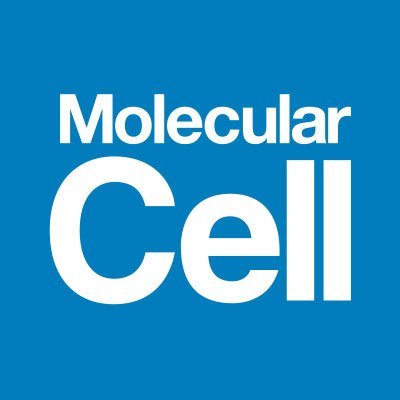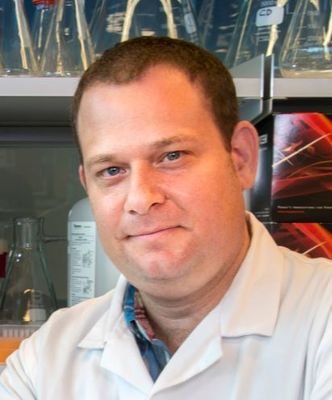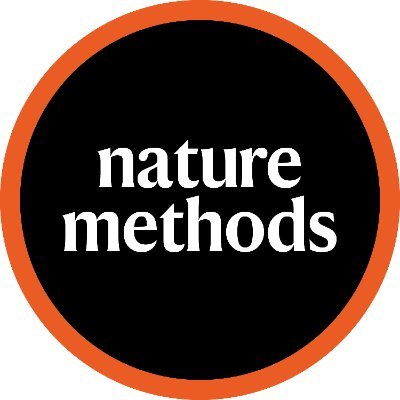
Jimmy K. Guo
@jimmykguo
Followers
110
Following
120
Media
0
Statuses
17
MD-PhD student in @mitchguttman lab @Caltech
Joined February 2022
Our paper is out in @MolecularCell where we show that many widely reported RNA-protein interactions for PRC2 and other chromatin proteins do not occur in vivo. Check out more in this thread by @mitchguttman:
PRC2 is reported to bind RNA. Yet, genetic experiments have raised serious questions about their functional relevance. Our paper revisits the biochemical evidence supporting widespread PRC2-RNA interactions and finds that many of these do not occur in vivo.
1
7
52
Happy to share our new SPIDR method for mapping RBPs at scale out in @CellCellPress!
Many proteins bind RNA, yet we still don’t know what RNAs most bind because methods map one RBP at a time. In @CellCellPress, with the Jovanovic lab, we describe SPIDR – a method for mapping the RNA binding sites of dozens of RBPs in a single experiment. https://t.co/Zs2Rn35D3s
0
3
25
Isogenic comparison of Airn and Xist reveals core principles of Polycomb recruitment by lncRNAs https://t.co/L3WTuyKKbq
0
19
76
Gene regulation involves thousands of proteins that bind DNA, yet comprehensively mapping these is challenging. Our paper in @NatureGenet describes ChIP-DIP, a method for genome-wide mapping of hundreds of DNA-protein interactions in a single experiment. https://t.co/0aINMj2MTu
nature.com
Nature Genetics - ChIP-DIP (ChIP done in parallel) is a highly multiplex assay for protein–DNA binding, scalable to hundreds of proteins including modified histones, chromatin regulators and...
8
190
692
A report made counterintuitive claims that PRC2 binds → more RNA than PTBP1 & hnRNPU → RNAs that do not exist in the cell We found a simple explanation: the authors ignore most RNA in the sample, leading to inflated background & misleading conclusions. https://t.co/F3M9QVP9SQ
biorxiv.org
We recently published biochemical and quantitative evidence that challenges the widespread claims that PRC2 binds directly to many RNAs in vivo . A recent preprint performs a re-analysis of some of...
1
28
93
Excited to share a new preprint! (1)🔬The nucleolus is the most prominent nuclear condensate, with a fascinating multilayered liquid-like structure, and is the site of ribosome biogenesis. But how does this multiphase architecture form and function? https://t.co/xKP9tGFFlQ
11
114
450
1/ Is RNA essential for PRC2 chromatin occupancy? Here we refute evidence that was previously used to support this idea. Work by @evan_healy4 and @QiZhang85 from the @DavidovichLab, @MonashBDI, @EMBLAustralia. https://t.co/Bef93jh6CA
cell.com
Healy et al. demonstrate that RNase A treatment of chromatin during immunoprecipitation leads to the artificial loss of all facultative heterochromatin. This observation can be explained by a gain in...
7
40
123
What is the role of RNA in PRC2 chromatin association? Pleased to share that @HallHickman’s work showing that the RNA bridge model is based on an experimental artefact has now been published @CellReports
https://t.co/LZ3mWYn7HF
cell.com
The reduced detection of PRC2 target sites upon the addition of RNase A to chromatin immunoprecipitation experiments suggests the existence of RNA bridges that connect PRC2 to chromatin. Hall Hickman...
1
39
112
Online Now: Denaturing purifications demonstrate that PRC2 and other widely reported chromatin proteins do not appear to bind directly to RNA in vivo https://t.co/iG0JZvKfZp
3
88
299
Gene expression involves thousands of proteins that bind DNA, yet comprehensively mapping these is challenging. We developed ChIP-DIP – a method for simultaneous, genome-wide mapping of hundreds of DNA-protein interactions in a single experiment. https://t.co/NEH92mQTGs
7
235
823
Excited to share the first part of my PhD work! Into the SPIDR-verse! This massively multiplexed CLIP method will take your research to a multiverse of possibilities 🕷️🕸️
Many proteins bind RNA, yet we still don’t know what RNAs most RBPs bind because current methods map one protein at a time. With the Jovanovic lab, we describe SPIDR – a method for mapping the RNA binding sites of dozens of RBPs in a single experiment. https://t.co/BnxlSyJLfE
1
2
19
In our new pre-print, we demonstrate that 3D genome organization around nuclear speckles controls the efficiency of mRNA splicing. Check out my thesis work @Caltech in this thread by @mitchguttman! @4DNucleome #Genomics
What are the functional roles of 3D genome organization? In a new preprint led by @_prashantbhat, we demonstrate a critical role for dynamic 3D organization of genomic DNA around nuclear speckles in controlling the efficiency of mRNA splicing. https://t.co/zWBaXr7jmy
4
26
171
Excited to share our Comment now out in @naturemethods! @mitchguttman and I discuss the massive regulatory potential for ncRNAs and the technical challenges faced by the field in bridging the gap between this potential and functional relevance. https://t.co/NLtDHJg0GV
0
25
133
A Comment from @jimmykguo and @mitchguttman highlights recent method developments in studying RNA-protein interactions and discusses the future opportunities in and challenges of exploring ncRNA functions. https://t.co/Dn19Wxe4Xt
1
3
10
Really proud of @jimmykguo for giving an awesome talk on his graduate work at CSHL Regulatory RNA meeting - his first at a major meeting! #cshlregRNA
0
4
96
Great article about technological advances for studying 3D genome organization @Nature. A pleasure to host @amberldance in our lab and talk with her for this piece. Particularly enjoyed the lede featuring SHARP-Y (created by @jimmykguo @oliviaettlin )!
Methods that meld imaging with sequencing are uncovering the organizational principles of the genome and how it influences cell fates. Read the @Nature report.
0
4
26











